The energy of revolution
We use Google Cloud Translation Services. Google requires we provide the following disclaimer relating to use of this service:
This service may contain translations powered by Google. Google disclaims all warranties related to the translations, expressed or implied, including any warranties of accuracy, reliability, and any implied warranties of merchantability, fitness for a particular purpose, and noninfringement.


Netra Vikram Chand's mother-remembering of 'Biplav' was gaining momentum. That memory was quick. Towards the end of the interview, his eyes welled up, drops of tears ran down his face and fell to the floor. His mind was entangled in the lake-bessi of his mother's life.



He was always crying to his mother . In his mother's life there were few joys and many primitive sorrows. And dark evenings full of sorrows and sorrows . As he remembers an evening many years ago (around 2034) he becomes a cat . Asikadevi Ghartimar Chand (1986-2079) was devastated when she had to send her child away from her. Born in Rukum Rugha, her maternal lineage is Gharti .
She was standing on a high hill under the falling sky and looking far away, the path her son walked. As the poem of the poet Ramesh Kshitij says, Asikadevi was sitting on the hill - 'waiting for the next evening in the evening' . As if she was waiting for her son to return in the evening . The son did not have dreams yet, but the mother had some dreams - that the son should study well, become a big man, change the world .
There was no school in Netravikram's birthplace Rolpa Iriwang, Keuri. So she sent her son to study when he was 9/10 years old - Liwang . After walking for two days, Netravikram came down from Keuri alone to Liwang . The mother had put 2/4 of bread, one poko gundruk and one stick of ghee in the son's back bag. Netravikram's two brothers used to study in the living room. Asikadevi left Netravikram 3 hours down the road from home and stood on the hill and kept snoring down.
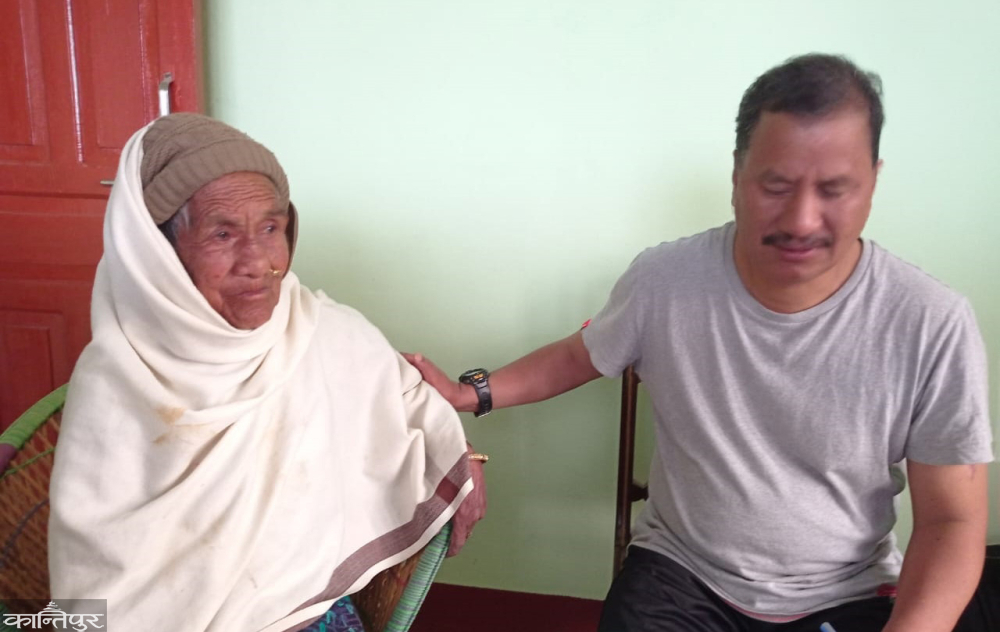 'Mother in the village, I in the living room. At that time the mother became sad. Maybe there was worry and sadness that the son is going away from the arms, and also the desire to study well,' one morning in March, looking at the blazing sun, Netra Vikram He was delving into his mother's past, "how was mother's condition at that time, happiness and sadness were mixed together." A mixed feeling of happiness and sadness.'
'Mother in the village, I in the living room. At that time the mother became sad. Maybe there was worry and sadness that the son is going away from the arms, and also the desire to study well,' one morning in March, looking at the blazing sun, Netra Vikram He was delving into his mother's past, "how was mother's condition at that time, happiness and sadness were mixed together." A mixed feeling of happiness and sadness.'
Netravikram passed his SLC at the age of 19 from Liwang's Child Welfare High School. He reached Kathmandu to study on campus and was admitted to Nepal Law Campus. Mother's dream was that we were children. Teaching us was his special desire in life, where I am now is possible because of my mother. Mother understood the importance of education,' he adds, 'however trying to teach is a great contribution of mother to us.'
***
46 years have passed - he came to Liwang from Iriwang to study. From that side, he played a special role in Prachanda's 'People's War'. Starting on February 1, 2052 After going underground in the Maoist 'People's War', he adopted the nickname - 'Biplav'. Nowadays, he returns to the dark days of Liwang on quiet evenings watching the moon move over the hilltops. A soft consciousness led him to 'people's war'. In the mind, there was only a desire for change. Every now and then he is haunted by the memory of Asinpusin's own face, running in the dark forest with a gun. And they ask themselves - where did it come from? When he remembers those rough days of struggle, he thinks - that time was as dear as poetry.
To him, those days of 'people's war' are like the 'meditation' of a revolutionary. "The days of those days that shook the brain," he says, "one energy can change the path of life." We had immense inner strength and energy at that time. That 'inner strength and energy' was filled by the mother, within her. A mother is the best witness in the life of her children, who always speaks the language of truth, faith and courage. She carries the burden of the world's sorrows on her own head and seeks the happiness of her children. Mother is the agent of change for Netravikram. His mother is the advocate of his salvation. "Mother had revolutionary ideas," he snorts.
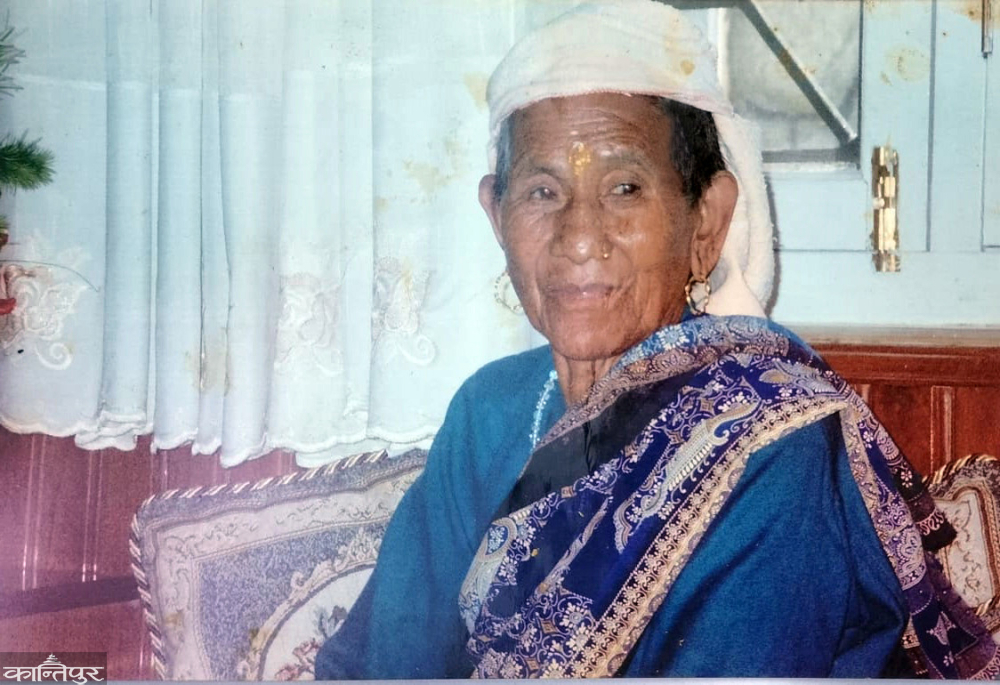 Netravikram joined politics while studying in high school. During those black days of the Panchayat, he became familiar with the student movement while studying in class 6. In the 9th grade, he became organized. By the time he reached class 10, he became the student body president of Rolpa. Mother was interested in her son's political journey. Even seeing the danger, she never became an obstacle.
Netravikram joined politics while studying in high school. During those black days of the Panchayat, he became familiar with the student movement while studying in class 6. In the 9th grade, he became organized. By the time he reached class 10, he became the student body president of Rolpa. Mother was interested in her son's political journey. Even seeing the danger, she never became an obstacle.
"Even after I went underground, my mother was positive about my politics, even though she was worried," says Netravikram, "Mother always supported me to join politics without letting my father know about many things. After having experienced the panchayat, the mother used to ask - father, is this change possible? Is the path you have taken possible?' Chitra Bahadur, Netravikram's father, did not pay much attention to his son's politics. He kept saying 'that way is not right'. However, his mother remained the emotional inspiration for his political journey. Asikadevi had three sons and three daughters. Netravikram is the youngest. "Fathers want their children to follow their tracks, mothers follow their children's tracks", he concluded.
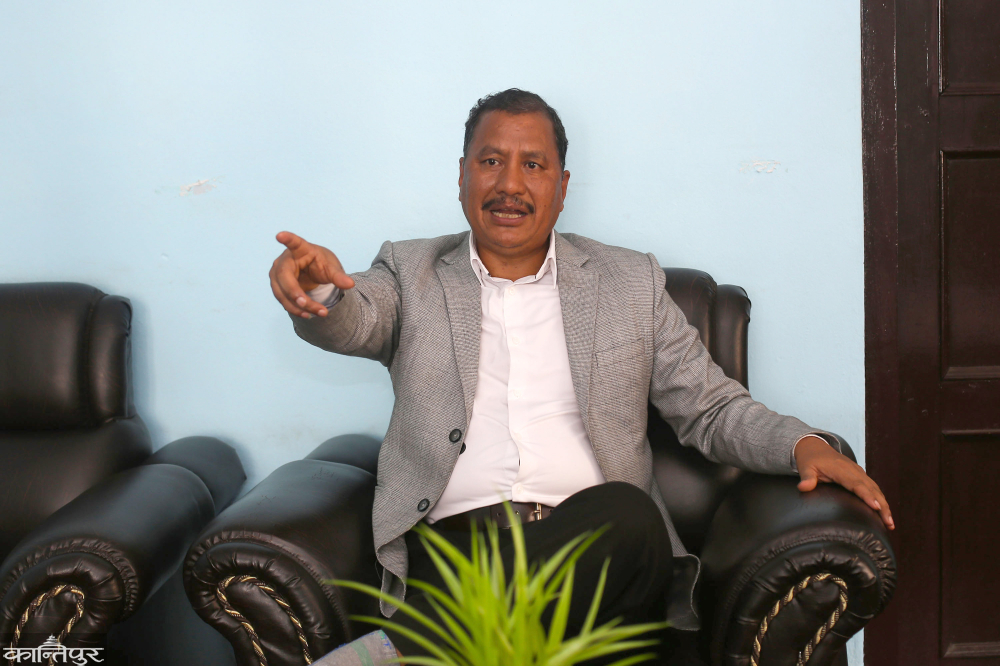 Netravikram says that his mother's trust, harmony and love for him cannot be compared to anything in the world. "Mother's love and blessings are of any value, don't they?," he says, "just the memory of my mother makes my heart flutter." "It was my mother who contributed to make my life creative and dynamic," he says, "It was my mother who inspired me to walk on the path of political justice." He was the vice president of the Aneraswaviyu (Revolutionaries) when the Maoist "People's War" began. Then Lalitpur party secretary, Karnali sub-regional bureau in-charge, central member, politburo member became in-charge of Rukum-Rolpa base area bureau. The government banned the party led by him in 2075 after activities like boycotting the 2074 elections, explosions at the Ncell headquarters. In 2077, the ban was lifted after the commitment to join the peace process. His image in towns and villages is that of a 'rebel leader'. After separating from the Maoists in 2071, he had a different image. After a long armed struggle against the government, his party is now in open politics.
Netravikram says that his mother's trust, harmony and love for him cannot be compared to anything in the world. "Mother's love and blessings are of any value, don't they?," he says, "just the memory of my mother makes my heart flutter." "It was my mother who contributed to make my life creative and dynamic," he says, "It was my mother who inspired me to walk on the path of political justice." He was the vice president of the Aneraswaviyu (Revolutionaries) when the Maoist "People's War" began. Then Lalitpur party secretary, Karnali sub-regional bureau in-charge, central member, politburo member became in-charge of Rukum-Rolpa base area bureau. The government banned the party led by him in 2075 after activities like boycotting the 2074 elections, explosions at the Ncell headquarters. In 2077, the ban was lifted after the commitment to join the peace process. His image in towns and villages is that of a 'rebel leader'. After separating from the Maoists in 2071, he had a different image. After a long armed struggle against the government, his party is now in open politics.
Netravikram's image is 'rebellious' but his speech is soft. He says he learned that from his mother. His style is to break the silence and say 'ho ni' every now and then. His life-line has crossed a unique cuineto when he came to open politics through 'people's war'. To understand him is to understand the life of a conscious young man of the country and the many vicissitudes that came during his lifetime. His mother has a prominent place in that ups and downs of life.
There are certain scenes that keep repeating in Netravikram's mind. In his post-college days, he used to study by the light of a tuki that threw up thick smoke in the dark nights of Irivang. The mother was listening attentively to her son. He used to read books about socialist civilization, life and culture to his parents. His mother could not read and write, his father used to recognize letters. Netravikram used to recite Chinese literature, Krishnasen Ichchuk and Kewalpure farmers' poems, Russian stories. After listening to everything, mother used to say - you are becoming very knowledgeable.
When Netravikram was underground, his family had moved from Rolpa to Kapilvastu-Shivagarhi. The mother became more worried after her son went underground. The police used to come to the house and search the house. It made him sad. In 2054, his father Chitra Bahadur died of liver problems. The state did not allow the body to be cremated. Netravikram, who was the secretary of Lalitpur, was not able to go home. The police surrounded the body that was prepared to be burnt, thinking that the son would surely come to see the father's body. Even at that time, his mother was standing firm like a mountain.
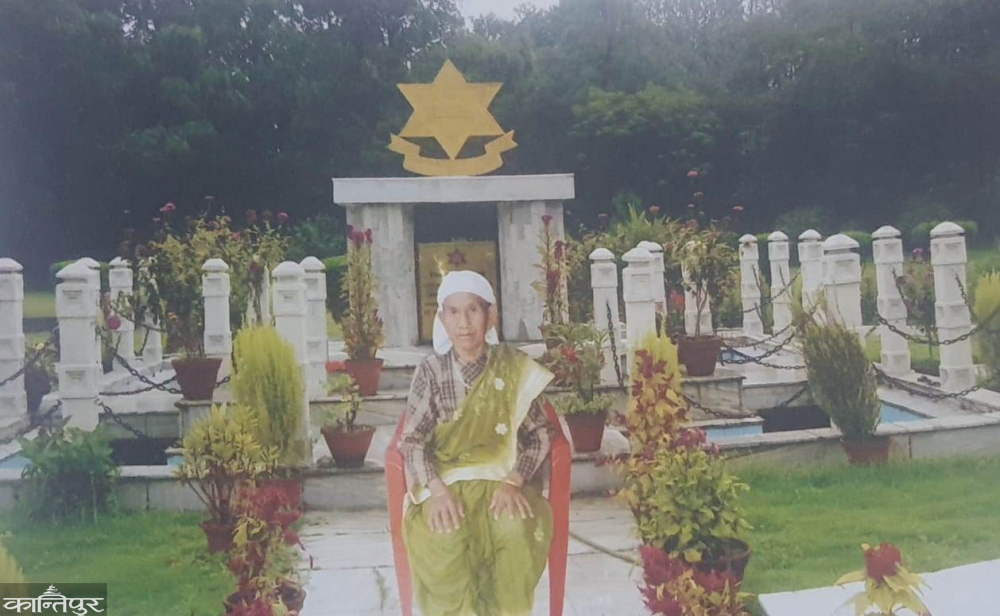 After his father passed away, Biplav went to Karnali, later to Rapti in 058. Mother went to Rapti to meet her son, stayed together for 6 months. At that time, she witnessed fierce battles between the government forces and the rebel forces. She saw many sons fall before her eyes, she was sad, she took care of her. She used to think that 'there will be damage, but there will also be change'. When Netravikram went underground, many properties of his house were destroyed. His family is Lahure (there was also a gun in the house, it was used in the revolution). Good equity was accumulated in the house. His mother was alone at home. He says, 'Government army, police used to loot gold and jewellery. The police didn't beat the mother, but they tore up the documents, ransacked the house. But, at that time she was very sad.
After his father passed away, Biplav went to Karnali, later to Rapti in 058. Mother went to Rapti to meet her son, stayed together for 6 months. At that time, she witnessed fierce battles between the government forces and the rebel forces. She saw many sons fall before her eyes, she was sad, she took care of her. She used to think that 'there will be damage, but there will also be change'. When Netravikram went underground, many properties of his house were destroyed. His family is Lahure (there was also a gun in the house, it was used in the revolution). Good equity was accumulated in the house. His mother was alone at home. He says, 'Government army, police used to loot gold and jewellery. The police didn't beat the mother, but they tore up the documents, ransacked the house. But, at that time she was very sad.
The young people involved in the organization were more disciplined and responsible to the society than the village drinkers. Netravikrams labored. So his mother felt that her son is on the right path, on the path of change. But, there was another side, the fight. It added to his stress. During the underground period, the mother used to say to her son - stay safe, I will stay anyway. Even when my father passed away, my mother was not sad that she could not go to cremate the body because she knew that I was a security threat. He told us not to stress, we will arrange it,' Netravikram remembers.
Some of Netravikram's mother's habits are remembered, 'Mother used to socialize with everyone, was happy in feeding and drinking. He had a habit of not getting angry with anyone. He also respected his party friends. There was efficient social behavior. In Irivang, men had to go abroad for a season, women managed the house. Lahures used to go to Lahore. Those who were not from Lahore used to go to Kalapahar for employment – to Shimla and Garhwal. There were only women in the village for 5/6 months, it turned into a village without men.
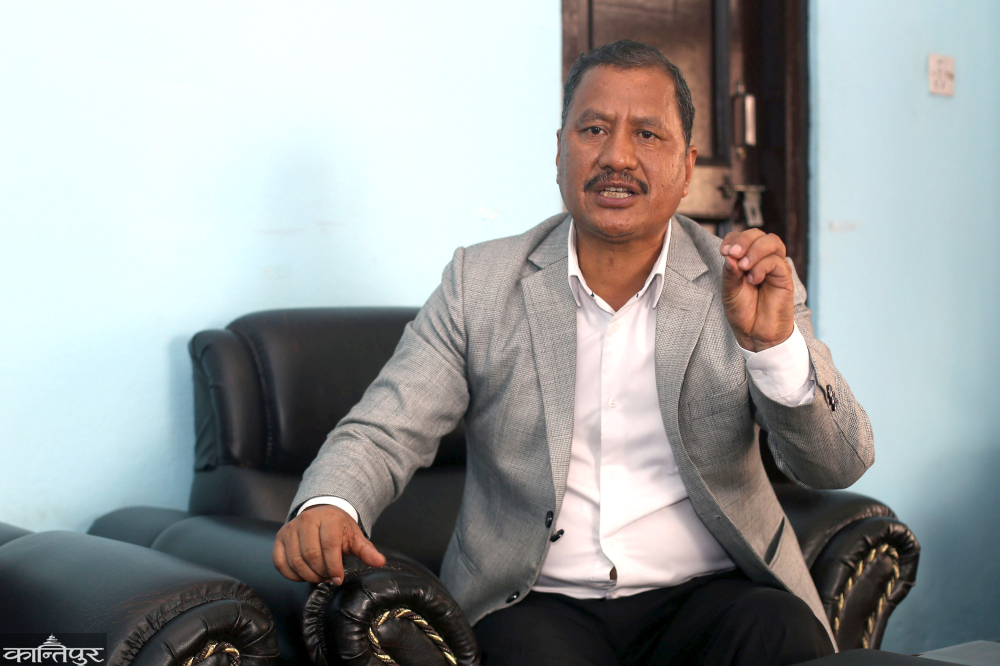 Those rural mothers used to go up to the lake in the dry season - with cows. From June to October, he lived in the lake shed. And the village fell in the cold. Those days of going up to the lake after taking care of his mother are still stuck in Netravikram's mind-library. He is also a shepherd in the lake. The economic life of the village was based on agriculture. Rearing buffaloes, making ghee and selling it in Madhes and returning from Madhes with salt and clothes was the daily routine of mothers. Jatras used to start in villages from Dasain. At that time, the husbands who had gone for migration would return to the village, and after the onset of Magha, they would migrate again. When Netravikram came to the village on vacation, he used to work hard - he plowed the fields, cut grass. Mother grinds grain on the ground.
Those rural mothers used to go up to the lake in the dry season - with cows. From June to October, he lived in the lake shed. And the village fell in the cold. Those days of going up to the lake after taking care of his mother are still stuck in Netravikram's mind-library. He is also a shepherd in the lake. The economic life of the village was based on agriculture. Rearing buffaloes, making ghee and selling it in Madhes and returning from Madhes with salt and clothes was the daily routine of mothers. Jatras used to start in villages from Dasain. At that time, the husbands who had gone for migration would return to the village, and after the onset of Magha, they would migrate again. When Netravikram came to the village on vacation, he used to work hard - he plowed the fields, cut grass. Mother grinds grain on the ground.
Netravikram's father, like other villagers, had stayed in Lahore for 8/10 years and returned to the village, changing his name from Lahore. Later he enjoyed farming in the village. According to Netravikram, rural mothers in remote villages did not think about life. That environment was not developed. They thought that children should follow the good path and be happy. Mothers who were a little more aware thought that they would be able to teach their children.
The stories and songs sung by rural mothers when their husbands go to Lahore or Kalapahad helped Netravikram to understand the society and women's lives . Those stories and songs were related to the life they lived. She used to sing songs of sorrow, pain and loneliness - songs that reflected life, often remembering her loved ones.
Netravikram thinks that mothers were the saddest in 'Janyuddha'. The sight of proud sons and daughters falling on the battlefield used to make mothers cry. Streams of tears flowed from his eyes, drowned in a terrible sea of pain and snow fell in his heart. "The pain of bereavement was the same for all the mothers, even if the rebels and those who died in the state side," says Netravikram, "but while expressing it, the pain felt less in the mothers of the children who fought in the people's war." Perhaps, they thought that they had sacrificed for the country. When we reached the house of those mothers, they would say - now you make my children's dreams come true. However, the police army mothers were in doubt whether their children would do it right by going to the state.'
Asikadevi was also unofficially involved in the 'Janayuddha'. She explained to the people of the village - 'People's war is right'. She lived with Netra Vikram at the height of the 'Janayuddha' and witnessed the battle from close quarters. When Netravikram was underground, he used to send letters to his mother saying, 'I am fine, I will win, I will definitely succeed, don't worry about me, mother! Friends will come home. What did Netravikram learn from his mother's life? "Social behavior," they say, "doing social behavior happily despite any difficulty."
Asikadevi Ghartimar Chand passed away at the age of 93. On November 17, 2079. Netravikram Kiria did not stay. His party has a new policy. According to that procedure, mother's funeral was held on the first day, tree planting on the second day. On the third day, aid was distributed to the poor. On the fourth day, a memorial fund was established and on the fifth day, a memorial service was held.
"Mother's heart was not hurt because my father did not do kiriya," says Netravikram, "I used to say to my mother - I will serve you till you live, I will not do kiriya after you die." Mother also ate, the crow's eaten, there is nothing to eat, and you have been living. ' 'Do this in the dream, you keep on times,' says Manlav, "says the mother and sorcere. After lack, it will be more important, as it is lacking. My life is connected with the word mother. Mom is a source of life - is the most sensitive creating and composition. & Nbsp;
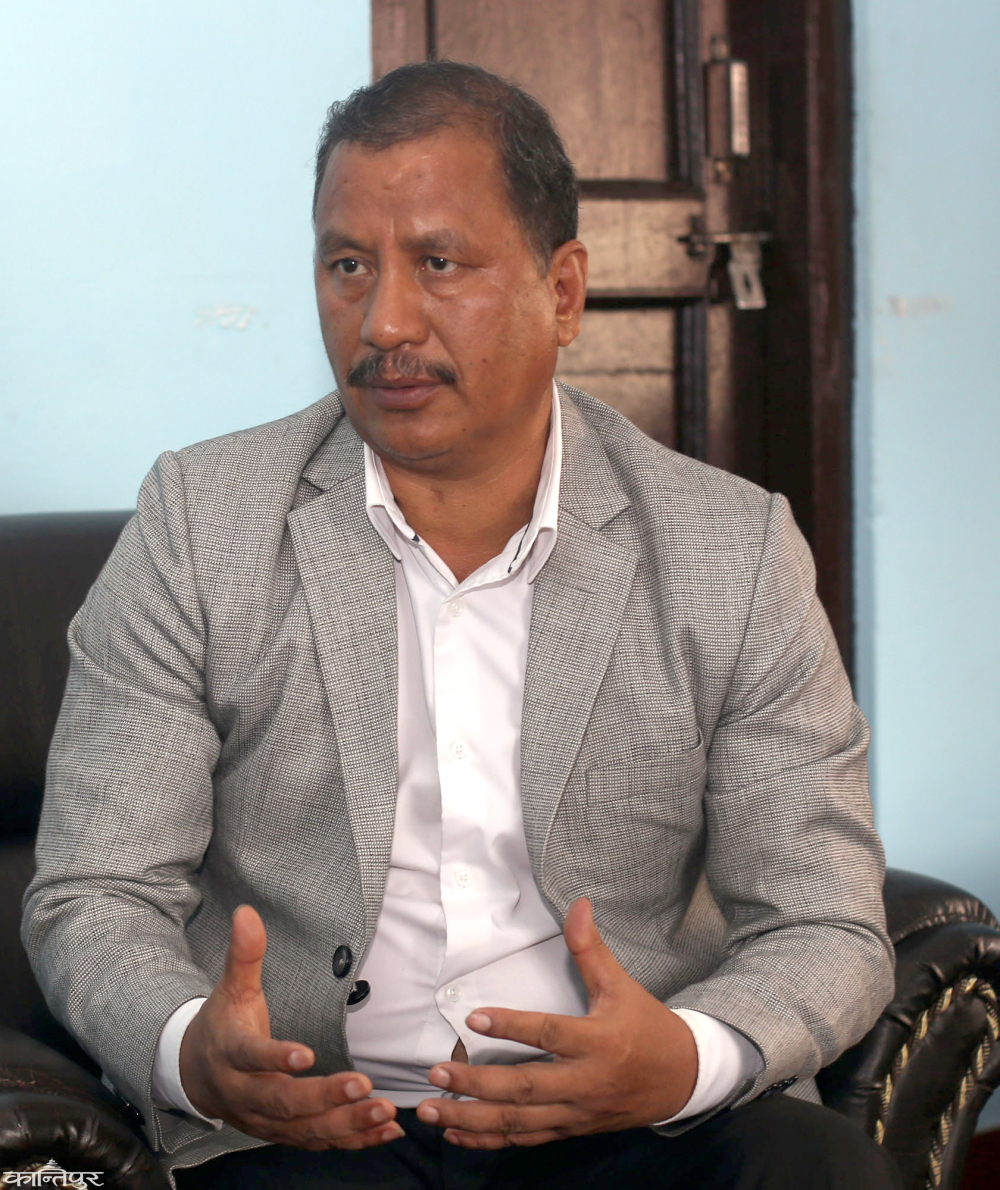 Netha Vidya, feelings, feelings, behaviors are connected to all mother, 'The first teacher and director of the child is a mother. If my mother did not inspire me, I would have had a lust that I would have been a bridede. The 'People's War' claims that the mother's life changes. 'They have started wasting the world, but it has not changed. There are more subjects to change their lives. In rural mothers, there is holy spirit and mind, 'he says. & Nbsp;
Netha Vidya, feelings, feelings, behaviors are connected to all mother, 'The first teacher and director of the child is a mother. If my mother did not inspire me, I would have had a lust that I would have been a bridede. The 'People's War' claims that the mother's life changes. 'They have started wasting the world, but it has not changed. There are more subjects to change their lives. In rural mothers, there is holy spirit and mind, 'he says. & Nbsp;
Eye Veacle, Nepali mothers have a terrible contribution to the 'People's World'. 'When we got home-to-house, my mothers meant not to fight their fighting son. His own son isr expressed love and feelings. Perhaps my son thought that there was a similar mother. The support was amazing, 'he says. Holtytimmen children, remembering those who mothers wearing a crying and say that they are thrilled to be burrowed. Santam-BREAK Mommy Acicidevyviation Remember, the same scene should repeat in her brain - mother looking at Liwan looking at the hill of the hall on the hill. Thinks of wideswritten eyes, "Scho is sometimes like child, mother's warm arms is dark. '
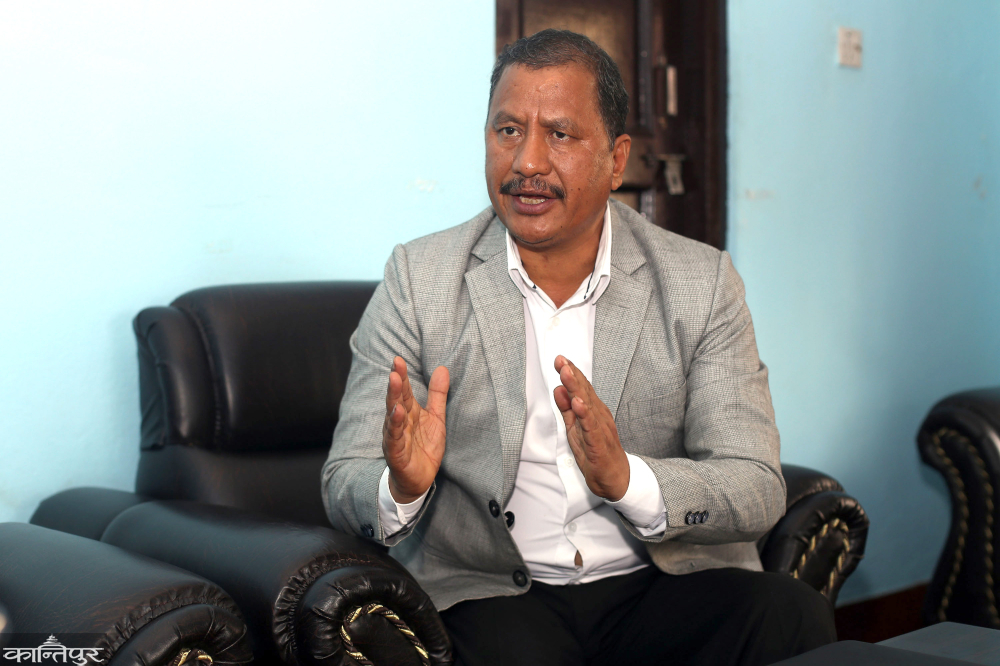


 २५.१२°C काठमाडौं
२५.१२°C काठमाडौं

















